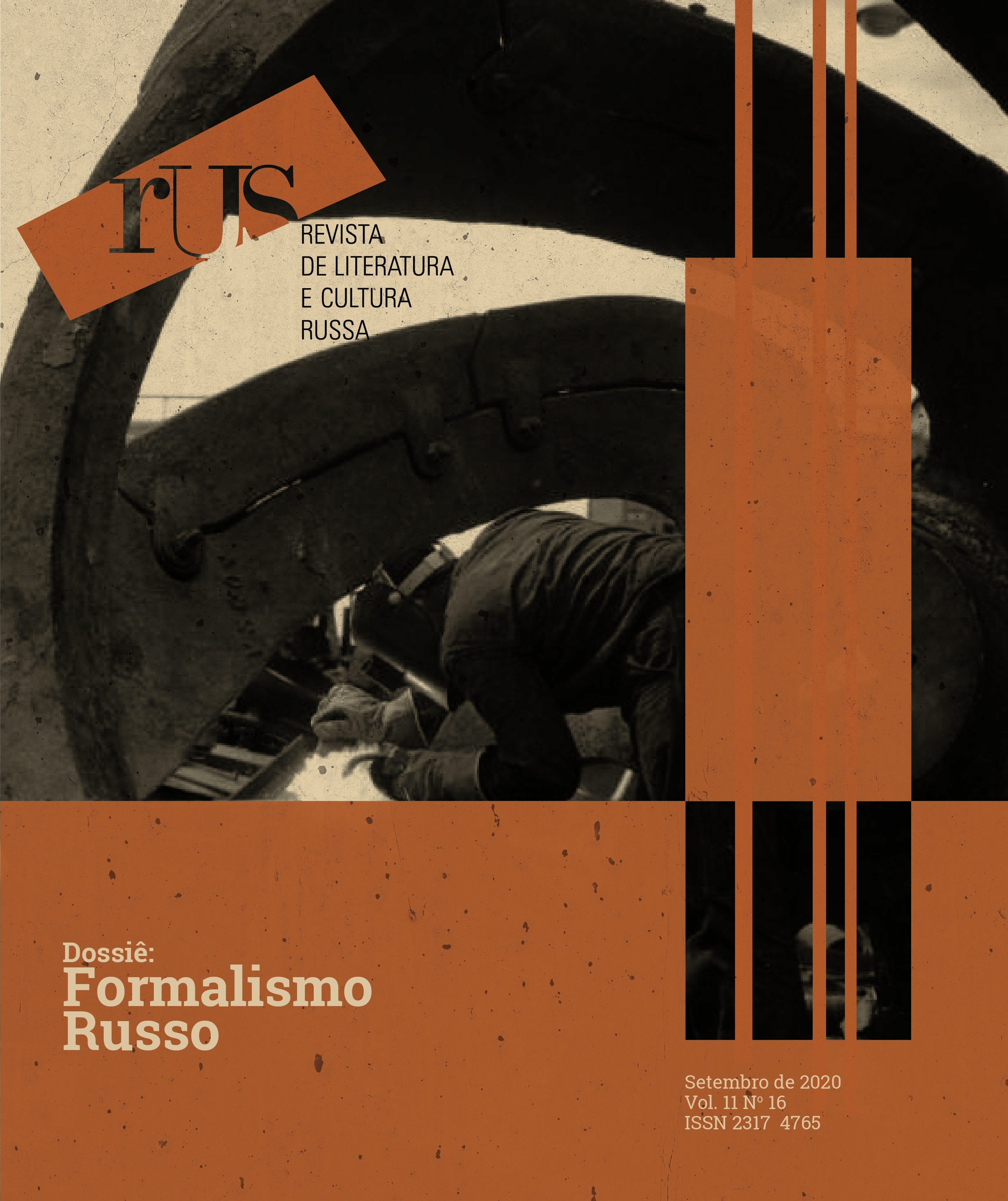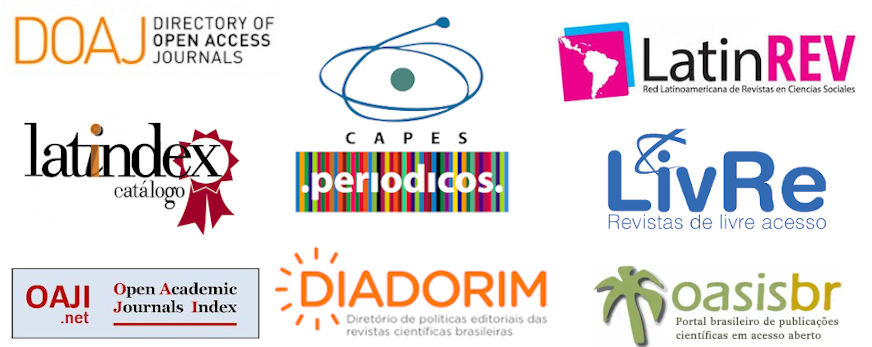Interview with Pau Sanmartín Ortí: The other side of Russian Formalism in Spain
O outro lado do Formalismo russo na Espanha
DOI:
https://doi.org/10.11606/issn.2317-4765.rus.2020.171801Keywords:
Russian Formalism, Pau Sanmartín Ortí, Roman Jakobson, Victor SchklovskiAbstract
A fortuna crítica sobre o formalismo russo em espanhol teve como sua mais recente contribuição o estudo Otra historia del formalismo ruso, de autoria de Pau Sanmartín Ortí, publicado pela editora madrilenha Lengua de Trapo, em 2008, refundido e ampliado de sua tese de doutoramento, La finalidad poética en el Formalismo ruso: el concepto de desautomatización, defendida na Universidad Complutense de Madrid. Aqui apresentamos uma entrevista com o autor, abordando vários aspectos de como se deu a sua pesquisa e visões mais recentes desta corrente de pensamento determinante até hoje. A entrevista contou com a colaboração do professor e pesquisador Valteir Vaz. Como a entrevista foi realizada em língua espanhola, utilizamos a transliteração de nomes russos daquele país
Downloads
References
ORTÍ, Pau Sanmartín. Otra historia del formalismo ruso. Madri: Editora Lengua de Trapo, 2008.
Downloads
Published
Issue
Section
License
Copyright (c) 2020 Gutemberg Araújo de Medeiros

This work is licensed under a Creative Commons Attribution-NonCommercial-ShareAlike 4.0 International License.
Authors who publish in RUS agree to the following terms:
a. Authors retain copyright and grant the journal right of first publication with the work simultaneously licensed under a Creative Commons Attribution 4.0 International License (CC BY-NC-SA 4.0) that allows others to share the work with an acknowledgement of the work’s authorship and initial publication in this journal.
b. Authors are able to enter into separate, additional contractual arrangements for the non-exclusive distribution of the journal’s published version of the work (e.g., post it to an institutional repository or publish it in a book), with an acknowledgement of its initial publication in this journal.
c. Authors are permitted and encouraged to post their work online (e.g., in institutional repositories or on their website) prior to and during the submission process, as it can lead to productive exchanges, as well as earlier and greater citation of published work (See The Effect of Open Access).





